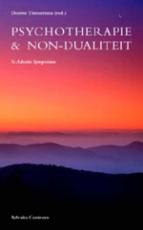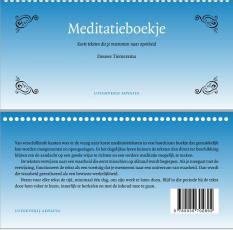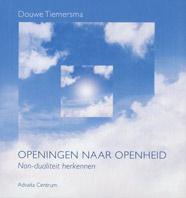Advaita Post #13-04 --- Your dream of 'I' and pain just cross over
Volume 13 No 4 (February 12, 2012)
--- Your dream of 'I' and pain just cross over into a large, bright, quiet, personal, aware dreamless sleep ---
Live lives itself
just like the chewing of cows
and the actions of men.
*****
Only in self reliance
without dependency
do you open
in love and non-duality.
*****
Pain
People have asked questions about the experiences relating to the operation. Perhaps it's useful to write something about that. So today it's about pain.
In the hospital you are regularly asked to rate the strength of your pain from 1 to 10. From 1 to 6 the pain is still bearable. That means you have a certain consciousness space in which you "can bear" the pain and can adopt an attitude towards it. Then the pain is an experienced phenomenon which imposes itself on your physical environment and on which you almost automatically focus your attention (1). When the pain persists this focus will almost always bring suffering, because 'I' don't want that pain.
That's also the case when you, in your consciousness, take distance from the pain as a local phenomenon and confirm that you are not that pain (2). The duality of 'I' and pain persists. There remains a resistance to the pain.
In this situation you can realize the necessity of accepting the pain and resigning yourself to its inevitability (3). Usually this, too, is not a definitive solution, because an 'I'-person remains with a conflict: on the one hand I don't want the pain and on the other hand I want to let go of this not-wanting. This conflict can't be resolved from within the 'I'.
The resolution can only occur when the structure,'I'-pain, with all its resistance, disappears. From your being-awareness you can expand your horizons in all directions, so that the pain phenomenon receives a very relative place without specific focus in your being-awareness. The distance between yourself and the pain that was there, has to a large degree disappeared within your greater being-awareness. This happens completley when you release your own center of consciousness (4). Then there is a surrender to the great non-dual whole.
Starting from your being-awareness the falling away of the distance also happens directly when you consciously go towards the pain, enter into it and coincide with its core (5). Then you surrender to the pain. Then I and pain disappear in a non-duality. See the talk on the website under Health, Healing , Sickness and non-duality "Coinciding with the pain". [not translated]
To the extent that the pain is very strong there is no question of a consciousness from which the choice of an attitude or movement with respect to the pain is possible (6). That happened to me when the "pain block" stopped working in intensive care. The pain can be unbearable, that is, not to be borne by a person, an 'I' with a certain consciousness space. The 'I' is overwhelmed and swept away. Then there is just pain-being. With that there is not the choice that existed in the paragraphs above. Here both freedom of choice and resistance do not occur. The 'I' is violently overthrown. A layer of infinite being remains, previous to that of the'I'-person, with a moan like that of an animal. The knowledge of this previous state remains therein. It is an internal basic-consciousness which coincides with this natural state. So there is the internal being-knowledge of a primal-duality and this appears to be a primal silence and primal light. Your dream of 'I' and pain just cross over into a large, light, silent, personal, aware dreamless sleep.
Severe pain that pulls you away from the world, offers nevertheless a good chance to become internally aware of your own infinitely silent light and of the absolute into which the silence crosses over.
When then the worldly situation returns, this dimension can remain open ....
*****
Text Satsang
A totally different kind of reality
From a talk with Douwe Tiemersma, Gouda, 7 Sept. 2011
Enlightenment is quite a difficult concept. I don't use it very often, but it has to do with an original being-awareness that is always already there, but is usually not recognized consciously. In most yoga schools there is a gradual and meditative approach to it, such as with the eightfold path of Patanjali. It is then placed in the context of time and space. But it's about something else entirely. It has to do with the realization of that which precedes the arising of time and space and all the forms that are present within it. In itself, it is not to subject to them, so it's free. When you can remain aware in it, you recognize it as something of your own self-being. Then there is an incredible relaxation, a letting go, and simultaneously an incredibly clear consciousness. This combination is very difficult for most people. Frequently there is a misunderstanding about the type of awareness that is there then. When you totally relax, there is another kind of consciousness. In the West consciousness is usually defined as "the focus on something else so that you can get to know it." I see a lamp and I am conscious of it. This consciousness is a quality of perception. You are focused on things through hearing, feeling, seeing. But when you relax, this focus falls away. That is something that is never recognized or accepted in Western psychology and philosophy. But precisely that is a very valuable type of consciousness. You return to the origin of your attention. You find a zero point there which is open. In that origin you are yourself.
So it's about an awareness of the totally relaxed state. Everybody has that in him, because everyone is themselves. The forms that the self has received, such as self-image, social identity, all kinds of beliefs, traumas, complexes, are all secondary. There is always something which precedes the deepest trauma, something which does not suffer from that trauma. When you can get in contact with it, it forms the basis on which that trauma can disappear. You don't solve anything by still digging into the past or into all kinds of difficult circumstances. Even so-called 'normal people' have a complex, namely an ego-complex. So you go back to the region previous to the formation of the ego. When you don't return there regularly - even if only just in sleep - then within the shortest amount of time you are overwrought and ripe for the psychiatrist. Every form of yoga is designed to allow you to return to your natural state. The jnana yoga which is central to Advaita Vedanta, says: let this happen with insight, so that this state can stabilize.
Does this state need to be recognized in some way?
No. Understand that it's not about a psychological or personal recognition. It's about a totally different type of reality. Don't start reconstructing it in the normal space and time and world of men. The standard world is very relative. If you were able to look back over the past hundred years and see how busy the egos had made themselves, acting as if their reality is the absolute reality, then you see how relative that is. You see that the source of suffering is directly associated to a very limited perspective of that ego with all its conditionings. When your awareness becomes just a bit more expansive and deeper, you realize that the self-being is infinitely greater than that limited world. The limited 'I' thinks: I must be free in this world so I must assert myself there. I need more power, more money, more spiritual capacities and through that I can become free. Most people make this basic mistake.
So go back to that source. When this happens in an aware manner, you go through all the layers very quickly. The clarity of consciousness must be extremely high. Otherwise you fall very quickly back into the standard reaction, such as when something really interesting comes up, or when someone mentions your name, or when there is an attack. You will need to see and experience: something else is also possible. That is the conscious recognition of what you always already were and so remain. At some point you will recognize that even the initial entry into the world, the first steps of incarnation, contain a traumatic element. Why is that? Because it is a curtailment of endless freedom and non-duality.
There is the possibility of increasingly incarnating into this world of space and time but also of the precise return to a dimension where the world of space and time is truly relative. It is a depth dimension in the world, but doesn't fully coincide with the three dimensional spatial world or that of time. When you see that this depth dimension doesn't fully coincide there, there is also freedom with respect to that world. In all the theology and philosophy of the 20th century it is said: now you are simply finite, you just need to accept it, just make something of it. But when you return to yourself, you notice that the self-being is infinitely more expansive. It isn't more spacious within the space of standard reality, but it exists in a totally different dimension which is much bigger than the cosmos. What was there before the Big Bang? We can't say anything about it. After billions of years the universe is going to shrink. What's left over? We can't say anything about it. What is there beyond the boundaries of the universe? We can't say anything about it. Returning to yourself you can have an internal recognition of a knowledge that you remain yourself, no matter what happens, even beyond the boundaries of the universe. Of course, everything that belongs to that universe - body and mind - will disappear. But what about yourself? It is absorbed into something much greater. You can remain aware of that. You can leave this dimension open, also as self-space. When that's clear nothing more needs to be said.
Er is geen tweeheid
als je ontspannen bent
in zelf-bewustzijn
is dat duidelijk.
Boeken
Douwe schreef en redigeerde gedurende zijn leven boeken. Via onze uitgeverij zijn deze nog verkrijgbaar.



